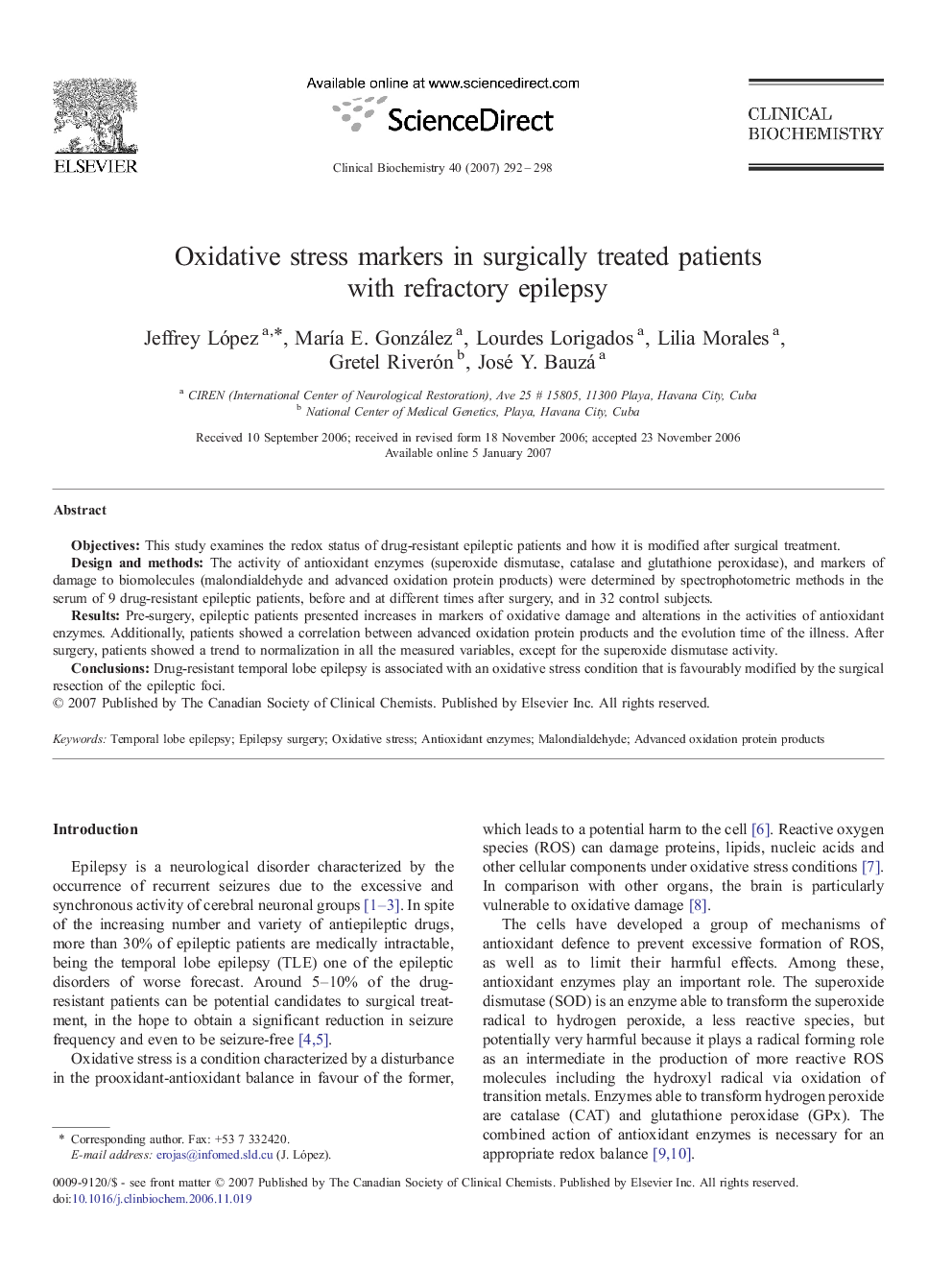| Article ID | Journal | Published Year | Pages | File Type |
|---|---|---|---|---|
| 1970290 | Clinical Biochemistry | 2007 | 7 Pages |
Objectives:This study examines the redox status of drug-resistant epileptic patients and how it is modified after surgical treatment.Design and methods:The activity of antioxidant enzymes (superoxide dismutase, catalase and glutathione peroxidase), and markers of damage to biomolecules (malondialdehyde and advanced oxidation protein products) were determined by spectrophotometric methods in the serum of 9 drug-resistant epileptic patients, before and at different times after surgery, and in 32 control subjects.Results:Pre-surgery, epileptic patients presented increases in markers of oxidative damage and alterations in the activities of antioxidant enzymes. Additionally, patients showed a correlation between advanced oxidation protein products and the evolution time of the illness. After surgery, patients showed a trend to normalization in all the measured variables, except for the superoxide dismutase activity.Conclusions:Drug-resistant temporal lobe epilepsy is associated with an oxidative stress condition that is favourably modified by the surgical resection of the epileptic foci.
